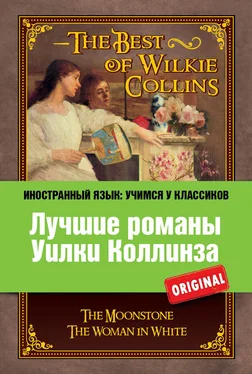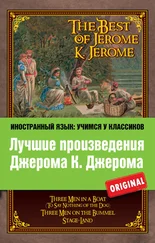It is the necessary law of such a story as mine that the persons concerned in it only appear when the course of events takes them up – they come and go, not by favour of my personal partiality, but by right of their direct connection with the circumstances to be detailed. For this reason, not Pesca alone, but my mother and sister as well, have been left far in the background of the narrative. My visits to the Hampstead cottage, my mother’s belief in the denial of Laura’s identity which the conspiracy had accomplished, my vain efforts to overcome the prejudice on her part and on my sister’s to which, in their jealous affection for me, they both continued to adhere, the painful necessity which that prejudice imposed on me of concealing my marriage from them till they had learnt to do justice to my wife – all these little domestic occurrences have been left unrecorded because they were not essential to the main interest of the story. It is nothing that they added to my anxieties and embittered my disappointments – the steady march of events has inexorably passed them by.
For the same reason I have said nothing here of the consolation that I found in Pesca’s brotherly affection for me, when I saw him again after the sudden cessation of my residence at Limmeridge House. I have not recorded the fidelity with which my warm-hearted little friend followed me to the place of embarkation when I sailed for Central America, or the noisy transport of joy with which he received me when we next met in London. If I had felt justified in accepting the offers of service which he made to me on my return, he would have appeared again long ere this. But, though I knew that his honour and his courage were to be implicitly relied on, I was not so sure that his discretion was to be trusted, and, for that reason only, I followed the course of all my inquiries alone. It will now be sufficiently understood that Pesca was not separated from all connection with me and my interests, although he has hitherto been separated from all connection with the progress of this narrative. He was as true and as ready a friend of mine still as ever he had been in his life.
Before I summoned Pesca to my assistance it was necessary to see for myself what sort of man I had to deal with. Up to this time I had never once set eyes on Count Fosco.
Three days after my return with Laura and Marian to London, I set forth alone for Forest Road, St. John’s Wood, between ten and eleven o’clock in the morning. It was a fine day – I had some hours to spare – and I thought it likely, if I waited a little for him, that the Count might be tempted out. I had no great reason to fear the chance of his recognising me in the daytime, for the only occasion when I had been seen by him was the occasion on which he had followed me home at night.
No one appeared at the windows in the front of the house. I walked down a turning which ran past the side of it, and looked over the low garden wall. One of the back windows on the lower floor was thrown up and a net was stretched across the opening. I saw nobody, but I heard, in the room, first a shrill whistling and singing of birds, then the deep ringing voice which Marian’s description had made familiar to me. “Come out on my little finger, my pret-pret-pretties!” cried the voice. “Come out and hop upstairs! One, two, three – and up! Three, two, one – and down! One, two, three – twit-twit-twit-tweet!” The Count was exercising his canaries as he used to exercise them in Marian’s time at Blackwater Park.
I waited a little while, and the singing and the whistling ceased. “Come, kiss me, my pretties!” said the deep voice. There was a responsive twittering and chirping – a low, oily laugh – a silence of a minute or so, and then I heard the opening of the house door. I turned and retraced my steps. The magnificent melody of the Prayer in Rossini’s Moses, sung in a sonorous bass voice, rose grandly through the suburban silence of the place. The front garden gate opened and closed. The Count had come out.
He crossed the road and walked towards the western boundary of the Regent’s Park. I kept on my own side of the way, a little behind him, and walked in that direction also.
Marian had prepared me for his high stature, his monstrous corpulence, and his ostentatious mourning garments, but not for the horrible freshness and cheerfulness and vitality of the man. He carried his sixty years as if they had been fewer than forty. He sauntered along, wearing his hat a little on one side, with a light jaunty step, swinging his big stick, humming to himself, looking up from time to time at the houses and gardens on either side of him with superb, smiling patronage. If a stranger had been told that the whole neighbourhood belonged to him, that stranger would not have been surprised to hear it. He never looked back, he paid no apparent attention to me, no apparent attention to any one who passed him on his own side of the road, except now and then, when he smiled and smirked, with an easy paternal good humour, at the nursery-maids and the children whom he met. In this way he led me on, till we reached a colony of shops outside the western terraces of the Park.
Here he stopped at a pastrycook’s, went in (probably to give an order), and came out again immediately with a tart in his hand. An Italian was grinding an organ before the shop, and a miserable little shrivelled monkey was sitting on the instrument. The Count stopped, bit a piece for himself out of the tart, and gravely handed the rest to the monkey. “My poor little man!” he said, with grotesque tenderness, “you look hungry. In the sacred name of humanity, I offer you some lunch!” The organ-grinder piteously put in his claim to a penny from the benevolent stranger. The Count shrugged his shoulders contemptuously, and passed on.
We reached the streets and the better class of shops between the New Road and Oxford Street. The Count stopped again and entered a small optician’s shop, with an inscription in the window announcing that repairs were neatly executed inside. He came out again with an opera-glass in his hand, walked a few paces on, and stopped to look at a bill of the opera placed outside a music-seller’s shop. He read the bill attentively, considered a moment, and then hailed an empty cab as it passed him. “Opera Box-office,” he said to the man, and was driven away.
I crossed the road, and looked at the bill in my turn. The performance announced was Lucrezia Borgia [266], and it was to take place that evening. The opera-glass in the Count’s hand, his careful reading of the bill, and his direction to the cabman, all suggested that he proposed making one of the audience. I had the means of getting an admission for myself and a friend to the pit by applying to one of the scene-painters attached to the theatre, with whom I had been well acquainted in past times. There was a chance at least that the Count might be easily visible among the audience to me and to any one with me, and in this case I had the means of ascertaining whether Pesca knew his countryman or not that very night.
This consideration at once decided the disposal of my evening. I procured the tickets, leaving a note at the Professor’s lodgings on the way. At a quarter to eight I called to take him with me to the theatre. My little friend was in a state of the highest excitement, with a festive flower in his button-hole, and the largest opera-glass I ever saw hugged up under his arm.
“Are you ready?” I asked.
“Right-all-right,” said Pesca.
We started for the theatre.
The last notes of the introduction to the opera were being played, and the seats in the pit were all filled, when Pesca and I reached the theatre.
There was plenty of room, however, in the passage that ran round the pit – precisely the position best calculated to answer the purpose for which I was attending the performance. I went first to the barrier separating us from the stalls, and looked for the Count in that part of the theatre. He was not there. Returning along the passage, on the left-hand side from the stage, and looking about me attentively, I discovered him in the pit. He occupied an excellent place, some twelve or fourteen seats from the end of a bench, within three rows of the stalls. I placed myself exactly on a line with him. Pesca standing by my side. The Professor was not yet aware of the purpose for which I had brought him to the theatre, and he was rather surprised that we did not move nearer to the stage.
Читать дальше
Конец ознакомительного отрывка
Купить книгу












